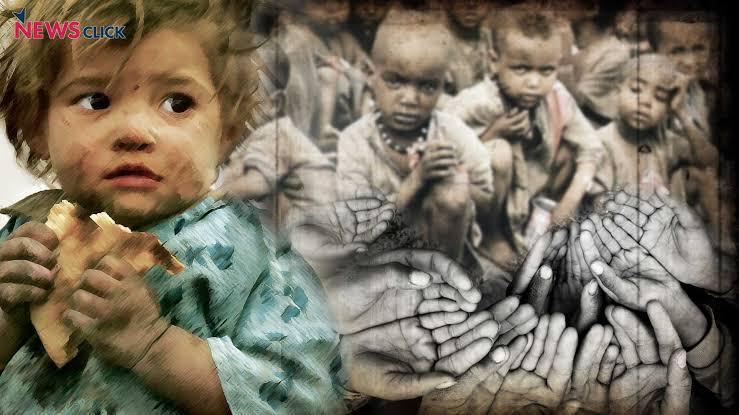Record Number of People Didn’t Have Enough to Eat in 2021, Says UN

Rome: The United Nations said on Wednesday that the number of people without enough to eat on a daily basis reached all-time high last year and is poised to hit “appalling” new levels as the Ukraine war affects global food production.
Almost 193 million people in 53 countries suffered acute food insecurity in 2021 due to what the U.N. said was a “toxic triple combination” of conflict, weather extremes and the economic effects of the coronavirus pandemic.
The UN said the total number of people without adequate food every day increased by 40 million last year, confirming a “worrisome trend” of annual increases over several years.
The figures appeared in the Global Report on Food Crisis, which is produced jointly by the UN Food and Agriculture Organisation, the World Food Program and the European Union.
Countries experiencing protracted conflicts, including Afghanistan, Congo, Ethiopia, Nigeria, South Sudan, Syria and Yemen, had the most food-insecure populations, according to the report.
The report forecasts that Somalia will face one of the world's worst food crises in 2022 due to prolonged drought, increasing food prices and persistent violence. The various factors could lead 6 million Somalis into acute food crisis, the UN said.
“Today, if more is not done to support rural communities, the scale of the devastation in terms of hunger and lost livelihoods will be appalling,” the U.N. said. “Urgent humanitarian action is needed on a massive scale to prevent that from happening.”
The war in Ukraine poses further risks for Somalia and many other African countries that reply on Ukraine and Russia for wheat, fertilizer and other food supplies.
The United Nations previously said the war was helping to send prices for commodities such as grains and vegetable oils to record highs, threatening millions with hunger and malnourishment.
“When we look at the consequences of what's happening as a result of the war in Ukraine, there is real cause for concern of how this will amplify the acute food needs that exist in these food crisis countries,” said Rein Paulsen, director of the Food and Agriculture Organisation's office of emergencies and resilience.
The report called for greater investment in agriculture and appealed for $1.5 billion to help farmers in at-risk regions with the upcoming planting season to help stabilize and increase local food production.
Get the latest reports & analysis with people's perspective on Protests, movements & deep analytical videos, discussions of the current affairs in your Telegram app. Subscribe to NewsClick's Telegram channel & get Real-Time updates on stories, as they get published on our website.
























